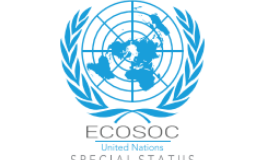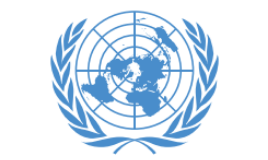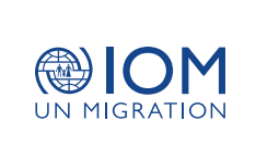Saleh Mohammed Al-Marri, General Supervisor of Qatar Charity's office in Jordan: We focus on relief programs due to the large number of Syrian and Palestinian refugees

9/12/2023 | Media Center

Mr. Saleh Mohammed Al-Marri has been actively engaged in Qatar Charity’s work and humanitarian activities in Jordan since its inception. He played a significant role in establishing its office there in 2021. By supervising the office, he continues to closely monitor the implementation of its relief and development projects and strengthens partnerships with relevant bodies.
In the following interview, we will learn about the importance of field offices and the significant achievements of Qatar Charity's office in Jordan, as well as gain insights from Mr. Saleh's experience in humanitarian work.
When did Qatar Charity begin its activities in Jordan?
Qatar Charity has been involved in humanitarian interventions in Jordan for many years prior to its official presence through its currently licensed office. The scope of its humanitarian work expanded in the Hashemite Kingdom of Jordan, especially in the aftermath of the Syrian crisis and its catastrophic consequences. The crisis led Syrians to seek refuge in neighboring countries, including Jordan, which bore a significant share of the refugee burden. The number of the refugees in Jordan exceeded 1.5 million, and there is no doubt that this figure had a clear impact on the humanitarian situation and placed significant pressure on a small country with limited resources. This also exacerbated the problems, particularly in the fields of healthcare, education, and livelihoods.
Due to these circumstances, Qatar Charity began to increase the scale of its humanitarian and social interventions in response to the humanitarian call. Additionally, it started considering the existence of an institutional framework for these interventions.
In 2016, a representation of Qatar Charity was established in Jordan, in cooperation with the Jordan Hashemite Charity Organization. Through this representation, Qatar Charity has implemented numerous humanitarian programs and projects in the fields of food security, healthcare, and orphan, family, and student sponsorship, in addition to implementing economic empowerment programs and other projects. The total volume of interventions during that period amounted to more than 50 million Qatari Riyals.
In 2021, Qatar Charity’s office was established in Jordan under an official license. Here, it is important to mention the role of the Embassy of the State of Qatar and express gratitude to it for supporting the programs and activities of Qatar Charity in Jordan and for facilitating the establishment of the office.
When did you take over the supervision of Qatar Charity's office in Jordan?
Because of my close knowledge of Jordan, I have closely followed Qatar Charity's work in Jordan from the beginnings. Thanks to Allah, we have contributed to and supported Qatar Charity’s programs and activities, in addition to building various partnerships to achieve its charitable and humanitarian goals until the office was established and up to the present day.
What are Qatar Charity’s main areas of work and what projects are implemented in Jordan?
Qatar Charity operates in various sectors in Jordan and implements numerous programs of humanitarian priority for refugees and disadvantaged Jordanian families. It is important to note that the challenges of refuge in Jordan are not limited to Syrian refugees alone; there are also Palestinian refugees and refugees from other nationalities, including Iraq, Yemen, Somalia, Sudan, Libya, and others.
Hence, there has been a focus on urgent relief programs, particularly those related to relief, healthcare, and treatment programs, in addition to supporting educational programs, shelter projects, and essential family and livelihood needs.
On the other hand, Qatar Charity in Jordan works on empowering underprivileged Jordanian families through income-generating projects, such as livestock and poultry farming, beekeeping, and other initiatives. Additionally, it implements other projects related to handicrafts like sewing, blacksmithing, carpentry, and agricultural activities to help the families and enable them to lead a dignified life. Furthermore, it provides assistance and sponsorships to orphans, impoverished families, persons with disabilities, and others with special needs.
Qatar Charity has also contributed to supporting the Jordanian government's efforts to combat the COVID-19 pandemic through a project for medical quarantine and in-kind assistance to families affected by the pandemic, whether in terms of health or livelihood.
It's worth mentioning that Qatar Charity, in previous years, and up to the present day, has been overseeing the operation of the largest health center in the Zaatari Refugee Camp. Additionally, it is currently constructing a health center building in Al-Hamra of Mafraq Governorate, eastern Jordan. It also delivered assistance to provide clean and safe water to more than 250 schools, provided air conditioners to over 100 mosques, provided educational equipment such as laptops and water coolers for schools and students, paid university fees for financially struggling students, and built a mosque in the Naour area. Currently, Qatar Charity is working on constructing another mosque in Karak Governorate, maintaining several mosques and homes, in addition to treating over 500 medical cases in various fields, including eye and heart diseases, kidney dialysis and transplantation, as well as cancer treatment and cochlear implants. Qatar Charity also sponsors approximately 7,000 orphans, families, and students.
What is the field offices’ role in enhancing Qatar Charity's humanitarian and development efforts?
There is no doubt that the role of field offices is fundamental in Qatar Charity's interventions. They serve as a security factor and monitoring mechanism to ensure that aid reaches its intended recipients with the required quality and in accordance with the project's standards, objectives, and expectations. This is achieved through direct supervision and the application of the organization's policies.
Furthermore, the presence of the office contributes to assessing priority needs on the ground, measuring impact, monitoring risks, and addressing them through direct interaction with beneficiaries.
The Field offices also enhance the identity of Qatar Charity, and its field presence underscores its commitment to its projects. They further enhance Qatar's image and its interest in charity work.
Why is it important for humanitarian workers to engage at the ground level?
When we talk about sustainable development, it means the desired benefit of humanitarian intervention and how to direct it towards achieving the best impact to solve human problems and poverty.
In my opinion, charity and humanitarian work are unlike other jobs. It requires individuals to have the ability to approach the target groups while preserving their human dignity, and possess skills that can address their needs regardless of their gender, ethnicity, or age.
When it comes to community needs, it is important to realize that they are based on the total members of the community. It is essential to closely identify these needs to ensure that community needs are not steered towards personal needs. Therefore, we can say that being close to the field and understanding the communities is a skill that can be beneficial for those engaged in charitable work, so that charitable work leads to the greatest benefit and towards the broader public.
What are your plans for developing the office's work and projects?
What concerns me the most is how to develop a mechanism to ensure the continuity of humanitarian work in light of global changes and financial crises. Therefore, one of the most important aspects I contemplate regarding future projects and their implementation is to invest in the local environment and find sources that will keep the office's humanitarian role and performance ongoing.
This does not conflict with the idea of developing charitable work as a productive tool. Perhaps, in Islamic history, charitable endowments (Waqf) provide the best example of this aspiration.
Can you tell us about some of the impactful situations you encountered during your fieldwork?
No doubt, many of the cases we face are impactful and have a significant impact on the heart, especially those of orphans and families who have lost their breadwinners. There are also family heads who are unable to support their families due to illness or disability, and you see them feeling lost and broken because they are unable to meet the needs of their families and children. On the other hand, there are something that brings joy to the heart. Some impoverished families managed to improve their living conditions after working hard to make their small income-generating projects, which were provided to them by Qatar Charity, a success.









